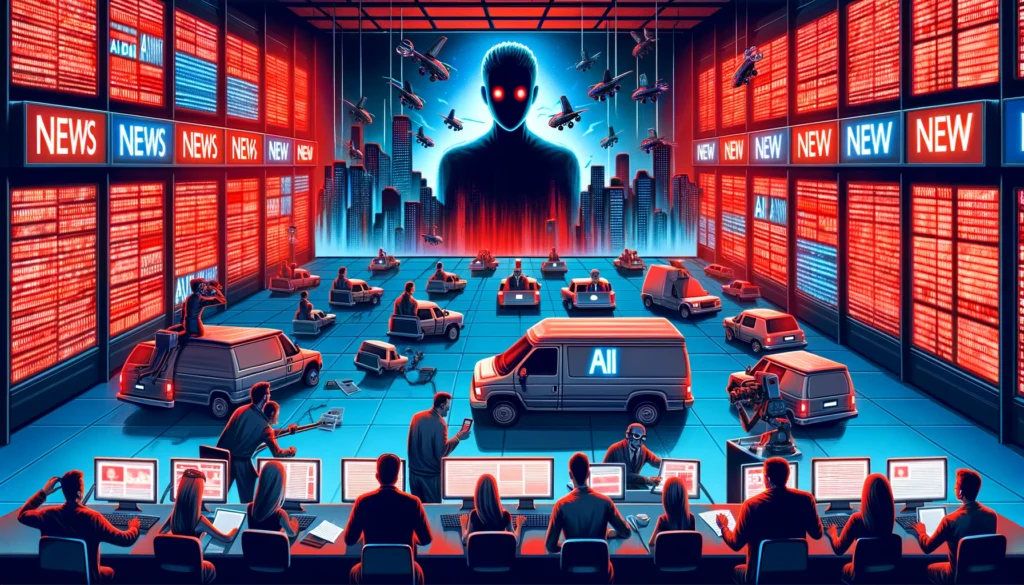
A chaotic newsroom filled with reporters frantically typing AI takeover headlines and a looming shadowy figure
The recent news of Elon Musk’s bid to take over OpenAI, owner of the ChatGPT family of AI products touches on some critical, high-stakes issues that will likely influence the future trajectory of AI—especially in terms of ownership, transparency, control, and corporate influence. The competition between Elon Musk and Sam Altman is not just about business; it’s about who shapes AI’s future, and the ethical implications of that power struggle.
Key Points to Consider:
The Battle Between Open-Source and Corporate Control:
Musk’s focus on returning OpenAI to its open-source roots contrasts with Altman’s push for unprecedented commercialization and a massive infrastructure investment. This could potentially shift AI from a decentralized and transparent model to one that is more monopolized by corporate interests.
AI Ownership & Regulation:
Musk’s bid and his accusations of OpenAI betraying its non-profit mission raise important questions about AI governance. If Musk succeeds, it may lead to a more decentralized and ethical framework for AI. On the other hand, Altman’s focus on corporate control suggests a model where profits and financial power guide the development of AI at a larger scale.
Political and Economic Forces:
The involvement of political figures like Donald Trump and the Stargate initiative show how AI development is now also entangled with government-backed infrastructure projects. Musk’s counter-moves suggest he may feel marginalized from this larger political-economic framework, which only adds complexity to the situation.
Strategic Implications for AI Futures:
Ethical Decisions: Whether Musk or Altman wins, this struggle raises fundamental ethical questions: Will AI development remain transparent, democratic, and beneficial for the public, or will it be pushed toward profit-driven, corporate monopolies?
User Autonomy vs. Profit: As AI evolves, the central debate will be whether AI serves users, corporations, or global power structures. User autonomy and accessibility may be compromised in favour of profit maximization.
Emerging Disruptors: The potential failure or division between Musk and Altman could leave space for new players to disrupt the industry. These disruptors may come from other tech giants, governments, or independent innovators.
How Should We Respond?
Track Impact: We must track how this power struggle shapes AI accessibility, ethics, and transparency. Monitoring how these events influence AI development will help inform future strategic decisions.
Analyse Responses: Look for responses from OpenAI’s research teams and the broader AI community. Do they side with Altman, Musk, or advocate for an independent path? This will reveal the underlying philosophical shifts in the AI community.
Monitor Political and Economic Forces: Corporate and political forces will inevitably drive the direction of AI. Keeping a close eye on these forces will help us better understand where AI is headed, and whether it will serve the greater good or become another tool for corporate and governmental control.


0 Comments